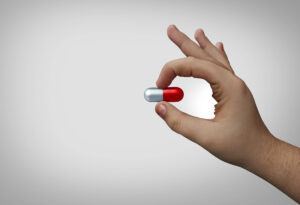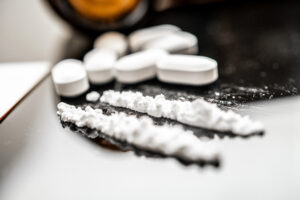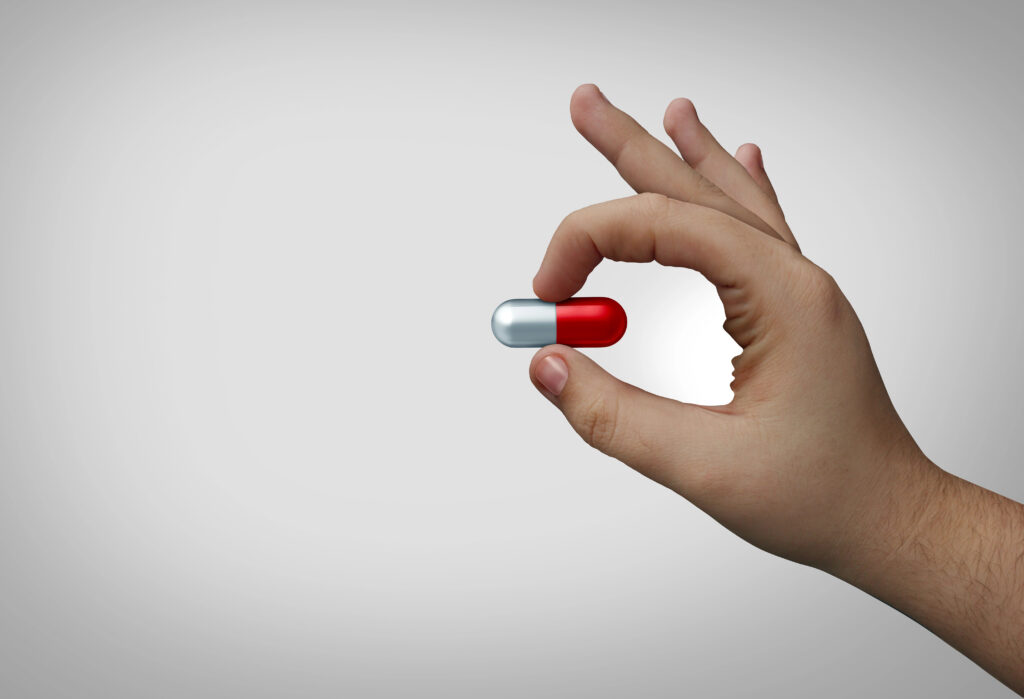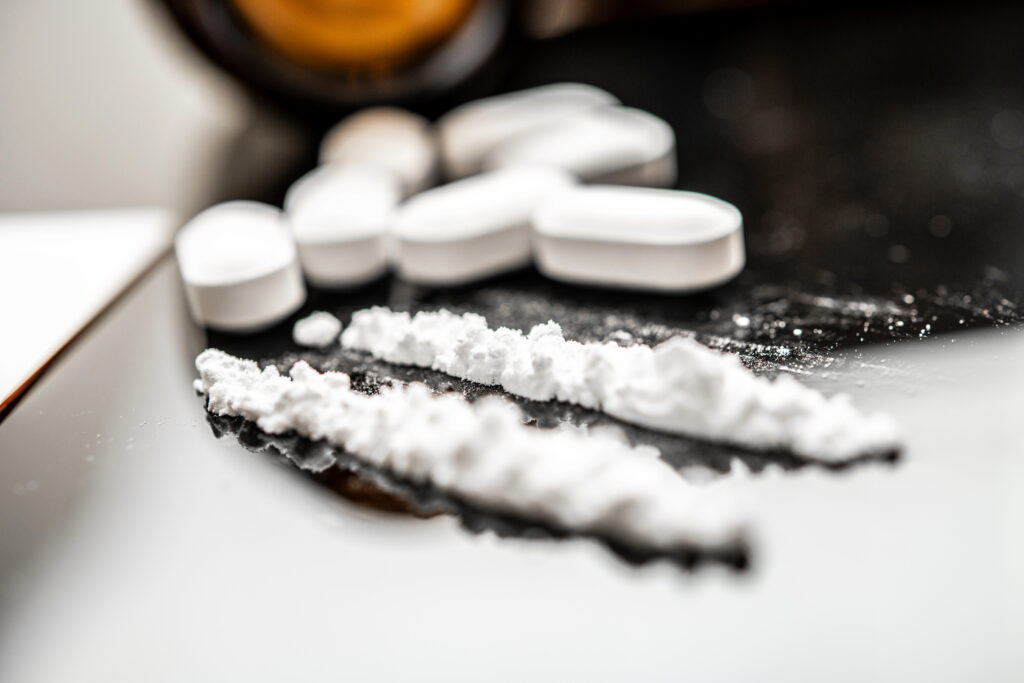Understanding Treatment-Resistant Depression: Options for Effective Support
Are you struggling with treatment-resistant depression and wondering what options exist when traditional treatments fail to deliver results? This post explains what defines treatment-resistant depression, reviews conventional and innovative therapies including Treatment-Resistant Depression and ketamine, and guides building a support system. The reader will gain clear insights and tailored strategies to manage depression effectively and regain stability.

Key Takeaways
- treatment options include tms, ketamine and combined therapies for resistant cases
- cognitive challenges often impact daily functioning and require comprehensive support
- lifestyle modifications alongside psychotherapy help stabilize treatment outcomes
- regular monitoring and personalized adjustments improve care efficiency
- active family involvement supports better recovery in treatment-resistant situations
Defining Treatment-Resistant Depression and Its Impact

TRD is marked by insufficient response to ect interventions and alterations in the monoamine neurotransmitter ratio. Data from the united kingdom indicate significant challenges with tolerability, including the need to verify-insurance. Subsequent sections address the characteristics, prevalence, and demographics of TRD, while also evaluating its emotional and social effects.
Identifying the Characteristics of Treatment-Resistant Depression
The characteristics of treatment-resistant depression often include cognitive difficulties such as issues with cognition and memory, which can severely affect daily functioning. An imbalanced approach to a healthy diet may worsen these challenges, underscoring the need for comprehensive support strategies.
Additional clinical observations indicate that this condition may share overlapping features with early signs of dementia in some cases, making timely intervention crucial for improving outcomes; readers are encouraged to verify updates and share feedback via their email address:
| Characteristic | Observation |
|---|---|
| Cognition | Frequent challenges affecting mental processes |
| Memory | Notable lapses impacting day-to-day activities |
| Healthy Diet | Dietary imbalances potentially exacerbating symptoms |
| Dementia | Shared features with early cognitive decline observed in certain cases |
Understanding the Prevalence and Demographics of TRD
The prevalence of treatment-resistant depression varies across regions, with studies often citing factors related to the biology of depression as contributory. Researchers frequently reference data available in pdf form on platforms like google scholar, offering insights that can help clinicians better distinguish patient demographics and clinical patterns linked to TRD.
Demographic research indicates significant correlations between patient characteristics and symptom persistence, prompting a closer look at strategies such as guided imagery and monitoring the vagus nerve’s activity. This analysis serves as a foundation for developing tailored support options that meet distinct needs in the clinical setting.
Exploring the Emotional and Social Effects of TRD
Treatment-resistant depression significantly impacts individuals’ emotional well-being and social interactions. Providers recommend integrated treatment approaches that address both mood shifts and the stress of daily living, helping individuals enhance coping skills through personalized support programs and occasional hospital-based interventions.
The social effects of this depression form include isolation and a decline in personal relationships, which often exacerbate mood disturbances. Providers advise a thorough evaluation to tailor treatment strategies, ensuring that patients receive the necessary assistance to improve coping mechanisms and social engagement while managing symptoms effectively.
Traditional Treatment Approaches for Depression

Standard therapies cover a wide range of approaches, including a clear definition of depression treatment using medications such as escitalopram and psychotherapy to address hormone and nerve regulation. The discussion also highlights when traditional methods may fail, examining dopamine responses and issues like postpartum depression.
Overview of Standard Therapies
Standard therapies offer a structured pathway for managing depression, blending medication with psychological support to alleviate sadness. Recent studies in neuroscience from reputable sources, including insights found on PubMed, reinforce the integration of pharmacogenomics in treatment plans, as observed in clinical settings in Singapore:
| Therapy | Description | Keywords |
|---|---|---|
| Medication | Optimizes neurotransmitter balance and targets core symptoms. | neuroscience, pharmacogenomics |
| Psychotherapy | Provides structured emotional support to mitigate feelings of sadness. | PubMed, Singapore |
Clinicians utilize these standard therapies to deliver personalized care that addresses a patient’s unique mental health needs and persistent sadness. Solutions are continuously refined through ongoing research, ensuring that professionals in regions such as Singapore rely on up-to-date neuroscience data and pharmacogenomics outcomes to better support individuals facing treatment-resistant depression.
When Traditional Methods May Fail
Traditional methods occasionally prove insufficient when addressing treatment-resistant symptoms, as some cases reveal limited improvements despite well-established protocols. Clinicians report that factors such as dysthymia and imbalances within the nervous system may interfere with expected outcomes, prompting experts to account for complementary practices like controlled breathing techniques and scalp stimulation to support recovery:
- Monitoring breathing patterns
- Addressing dysthymia through targeted therapies
- Evaluating nervous system responses
- Incorporating scalp stimulation methods
Practitioners note that patients facing prolonged challenges often experience slow progress and require additional strategies beyond standard care. Integrating diverse approaches helps tailor interventions, allowing experts to provide a more comprehensive account of each individual’s condition while enhancing the overall support framework.
The Role of Medication
Medication plays a significant role in managing treatment-resistant depression. Recent findings from massachusetts general hospital show that medications help regulate enzyme activity and mitigate risk factors associated with the disease, acting as a cornerstone in comprehensive treatment plans and supportive therapies.
This approach offers targeted support by addressing key biochemical components:
- Reviewing patient biochemistry
- Monitoring enzyme function
- Assessing overall disease risk
- Integrating additional therapies
These steps provide actionable insights to guide providers in adapting medication strategies to better meet individual needs.
Effectiveness of Psychotherapy
Research shows that psychotherapy offers measurable improvements in managing treatment-resistant depression, with studies noting a significant effect size in patient outcomes. Clinical data, including evaluations by the european medicines agency, highlight that psychotherapy can reduce the risk of common side effect responses seen in medication-only protocols.
Experts emphasize that integrating techniques such as controlled interventions, akin to the precision found with a nasal spray treatment, may address underlying gene-related vulnerabilities in depression. This focused therapeutic approach provides a structured pathway that complements pharmacological methods and supports patient stabilization while minimizing adverse side effect occurrences.
Exploring TRD Solutions Beyond Conventional Treatments

Integrating lifestyle modifications such as nutritional plans and controlled exercise routines offers complementary support to medicine like amitriptyline and esketamine treatments. Strategies addressing sleep deprivation and promoting communication enhance mood via mindfulness and meditation, providing effective support for treatment-resistant depression.
Assessing the Impact of Lifestyle Modifications
Recent studies indicate that lifestyle adjustments, such as establishing consistent sleep routines and monitoring blood pressure, provide practical support for individuals facing treatment-resistant depression. This approach complements traditional medications like quetiapine, offering additional stability and potential improvement in overall well-being.
Clinical observations from settings in thailand demonstrate that incorporating lifestyle changes may reduce the reliance on specific treatments, including tranylcypromine. Professionals note that consistent sleep practices and blood pressure regulation are essential for optimizing support strategies and fostering better mental health outcomes.
Nutritional Approaches for Managing TRD
Nutritional strategies play an influential role in depression treatment by providing essential building blocks for optimal neurotransmission and supporting dopaminergic activity. Practical adjustments include a balanced diet rich in omega fatty acids, vitamins, and minerals:
- Incorporate fresh fruits and vegetables
- Increase protein sources for neurotransmitter synthesis
- Maintain hydration and avoid processed foods
Clinical observations reveal that tailored dietary plans can complement the use of modafinil and massage therapy to ease TRD symptoms effectively. These nutritional adjustments work in tandem with other treatments, potentially enhancing overall well-being and stabilizing mood shifts.
Exercise and Its Benefits on Mood
Regular physical activity improves mood by boosting norepinephrine levels and encouraging problem solving during daily challenges. This approach aids in mental clarity and contributes to a balanced lifestyle:
- Increased receptor antagonist activity
- Enhanced weight loss efforts
- Improved dietary habits including higher fish intake
Exercise also supports a sustainable recovery process by easing stress and promoting a sense of well-being. Providers observe that consistent workouts lead to improved energy levels and may complement other therapeutic strategies in treating complex depression cases.
Mindfulness and Meditation Techniques
Mindfulness practices and meditation techniques offer a practical approach to managing treatment-resistant depression, providing steady relief without compounding issues like serious adverse events that may arise from more invasive treatments. Experts note that integrating these practices can adjust the odds in favor of improved mental clarity, even when patients are also treated with medications such as lisdexamfetamine or an agonist-targeted therapy under the guidance of centers for disease control and prevention.
Clinical observations indicate that structured mind-body exercises can foster a calmer mental state and better adaptive behaviors, contributing significantly to overall treatment outcomes. Researchers highlight that these techniques may complement existing therapies while reducing instances of serious adverse event reports, thereby optimizing the holistic support provided to individuals with treatment-resistant depression.
Innovative Therapies for Treatment-Resistant Depression

Innovative approaches such as transcranial magnetic stimulation, ketamine therapy, and ECT advancements now play vital roles in complex cases. Current research on psychedelic therapy offers additional receptor insights, while strategies integrating vortioxetine, controlled antibiotic use, exercise routines, and careful monitoring of mania symptoms provide practitioners with practical support options.
Transcranial Magnetic Stimulation (TMS)
Transcranial magnetic stimulation (TMS) offers innovative support for individuals facing treatment-resistant depression by targeting neural circuits linked to mood regulation. The procedure incorporates assessments like biomarker evaluation and blood analysis, aligning with advancements in neuropsychopharmacology to refine treatment strategies.
Clinicians acknowledge that integrating TMS with therapies such as fluoxetine and couples therapy can provide a comprehensive approach to managing complex symptoms. This method delivers practical benefits that help address both biological and relational aspects of depression, offering a pathway toward effective support and improved mental health outcomes.
Ketamine Therapy as a Breakthrough Option
Ketamine therapy offers a promising breakthrough for treatment-resistant depression by targeting neural pathways with precision comparable to an electromagnetic coil directing an electric current. Its mechanism involves acute modulation with a precision in standard deviation measures that supports improved regulation of mood and cognitive processes, providing tangible relief similar to approaches used in managing rheumatoid arthritis.
The therapy supports practical application in clinical settings, delivering rapid symptom relief and paving the way for individualized treatment plans that cater to specific needs:
- Advanced neural modulation
- Optimized treatment regulation
- Enhanced precision similar to electric current control
- Data-backed performance with standard deviation analysis
- Supportive benefits analogous to rheumatoid arthritis management
This approach integrates actionable insights, ensuring that providers can offer effective support to individuals facing persistent depressive symptoms.
Electroconvulsive Therapy (ECT) Advancements
Recent advances in electroconvulsive therapy provide viable options for addressing treatment-resistant depression by refining neurochemistry and reducing risk factor impacts. Clinicians observe that this improvement may positively influence the mind and complement other therapeutic agents such as stimulants and methylphenidate in carefully selected cases.
Current protocols introduce measured variations in electrical delivery to optimize treatment outcomes and better target imbalances in neurochemistry. Experts report that these adjustments lower overall risk factor contributions and offer renewed support for patients who may benefit from additional interventions alongside a stimulant regimen including methylphenidate.
Psychedelic Therapy: Current Research Insights
The recent investigation into psychedelic therapy reveals promising perspectives in addressing treatment-resistant depression. Research supported by the american psychological association shows that substances like acid can influence metabolism, offering additional avenues for effective support.
Innovative clinical approaches incorporate techniques such as acupuncture, and experts share insights on integrating these methods into therapy protocols:
- Clinical findings supported by linkedin discussions
- Practical applications of acid in regulating metabolism
- Integrated treatment plans involving acupuncture
- Data endorsed by the american psychological association
These actionable insights assist professionals in tailoring treatments to better address persistent depressive symptoms.
Building a Support System for Individuals With TRD

Family and friend involvement, support groups, and professional guidance are essential in managing TRD. This section covers effective coping strategies while highlighting treatments like maprotiline, electroconvulsive therapy, and insights from genetics research on the central nervous system. Practical community resources help seed recovery and assist both individuals and caregivers.
Involving Family and Friends in the Recovery Process
Involving family and friends in the recovery process creates an essential support network that complements primary care strategies and provides stability during treatment-resistant depression management. Professionals note that a systematic review of clinical studies supports the hypothesis that active family involvement can improve patient outcomes, as substantiated by evaluations measuring confidence interval improvements and treatment response, including when using duloxetine:
| Support Aspect | Description |
|---|---|
| Primary Care Collaboration | Integrating family support with clinical treatment plans enhances stability. |
| Systematic Review Findings | Evidence shows that a supportive network contributes to better confidence interval outcomes. |
| Pharmacological Integration | Use of medications like duloxetine is more effective when combined with familial involvement. |
The involvement of close individuals allows for real-time observations and adjustments in treatment plans, which may include medication management with duloxetine. Experts argue that monitoring progress through periodic updates and observations against set confidence intervals enhances the hypothesis that collaborative care leads to more favorable results, as shown in one systematic review study.
Support Groups and Community Resources
Support groups and community resources provide essential assistance for individuals managing treatment-resistant depression by offering regular interactions and shared experiences. These gatherings present an opportunity for participants to discuss challenges such as hypertension, while also exchanging insights on complementary practices like yoga and the use of serotonin reuptake inhibitors, backed by evidence from trusted sources on platforms like Twitter:
- Structured peer support
- Access to research-based recommendations
- Opportunities for holistic wellness practices
Community resources also facilitate collaborations among professionals and peers to deliver targeted strategies that meet individual needs. Active participation in these groups often leads to a better understanding of therapeutic options such as yoga and evidence-based medication management, offering clear pathways for improving overall mental health and daily functioning.
The Role of Mental Health Professionals
Mental health professionals play a critical role in optimizing pharmacotherapy for treatment-resistant depression by refining the mechanism of action behind prescribed medications and ensuring the appropriate dose is established. Their thorough evaluation of patient responses, including monitoring monoamine oxidase activity, guides adjustments that improve treatment outcomes.
These experts provide informed clinical insight that supports tailored interventions based on individual patient needs and ongoing evaluations. By integrating evidence-based practices with practical examples from clinical settings, they successfully address common pain points and refine approaches in pharmacotherapy for improved management of depression symptoms.
Coping Strategies for Individuals and Caregivers
Providers recommend that both individuals with treatment-resistant depression and their caregivers adopt coping strategies that involve clear communication using email updates, regular TMS sessions, and careful monitoring of buspirone adjustments. They note that tracking heart rate changes and analyzing odds ratio improvements can offer measurable insights into treatment progress.
Support groups and one-on-one professional guidance also offer practical methods for managing stress and maintaining emotional balance during treatment;
| Strategy | Details |
|---|---|
| Email Updates | Regular digital check-ins to monitor progress and adjust care plans. |
| TMS Sessions | Non-invasive therapy sessions aimed at optimizing neural function. |
| Buspirone Adjustments | Carefully monitored medication changes designed to reduce anxiety symptoms. |
| Heart Rate & Odds Ratio | Metrics used to evaluate physical responses and treatment effectiveness. |
Family participation coupled with targeted therapeutic interventions helps steer each individual toward improved mental resilience and adaptability, ensuring that proper support mechanisms are in place along every step of their recovery journey.
Personalizing Treatment Plans for Effective Management

Recognizing the value of tailored therapy, treatment plans must involve regular assessments and adjustments to address challenges such as a headache and potential bias. Combining therapies, including alternative medicine and neurology practices, supports optimal recovery while setting realistic goals. Unternehmen and clinical experts consistently stress practical, personalized strategies in managing treatment-resistant depression.
Recognizing the Importance of Tailored Therapy
Specialized therapy targeting severe depression provides measurable benefits by addressing the unique pathophysiology of each patient. Tailored treatment plans incorporate options such as selegiline to help manage persistent symptoms and refine how the patient is feeling during recovery.
Every individual’s clinical profile requires personalized adjustments that combine therapy with precise interventions, ensuring a practical match with their current pathophysiology. Providers focus on enhancing how patients are feeling by integrating selegiline and other evidence-based options in cases of severe depression, thereby promoting improved outcomes.
Regular Assessments and Adjustments in Treatment
Regular assessments guide tailored adjustments in treatment plans, ensuring that patients receive desvenlafaxine and complementary therapies aligned with their evolving needs. Clinicians observe adherence to protocols by monitoring food intake and addressing concerns like weight gain, all inspired by data from a recent clinical trial.
Ongoing evaluations allow providers to adjust medications and lifestyle strategies promptly, optimizing the effects of desvenlafaxine while carefully tracking adherence and physical changes. This proactive approach offers practical insights to manage weight gain and nutritional issues effectively, drawing on recent clinical trial findings that reinforce the benefits of customized treatment adjustments.
Combining Therapies for Optimal Results
Combining treatments offers a comprehensive approach to overcoming treatment-resistant depression, addressing both biological and behavioral aspects of the condition. Providers note that integrating pharmacotherapy with cognitive behavioral interventions gives patients valuable learning opportunities that may reduce seizure risks associated with certain medication regimens, as seen in recent open access studies published in the Cochrane database.
Multimodal plans enable clinicians to design mental health strategies that address specific symptoms by aligning medication with tailored therapy sessions. Clinical experts observe that this approach enhances recovery outcomes, promotes individualized learning experiences, and fosters improved symptom management documented in open access resources and Cochrane reviews.
Setting Realistic Expectations and Goals for Recovery
Clinicians set pragmatic expectations by outlining measurable milestones and achievable recovery targets, drawing on neuropsychiatry insights and data on neuron activity to provide actionable support. They advocate for a balanced approach that considers factors impacting addiction recovery and integrates treatments such as phenelzine while ensuring patient safety during anesthesia considerations.
Practitioners maintain an approach where well-defined goals align with a patient’s unique clinical profile, emphasizing regular progress checks informed by neuropsychiatric evaluations. This strategy equips patients with clear benchmarks to navigate the complexities of treatment-resistant conditions while addressing concerns related to addiction and medication efficacy.
Conclusion
Treatment-resistant depression requires comprehensive and personalized support. Providers implement a range of therapies, from advanced neurostimulation and precision medications to lifestyle modifications and mindfulness techniques. The tailored approach combines biological, emotional, and social strategies that effectively counteract persistent symptoms. This focused strategy empowers patients and guides practitioners towards achieving sustainable improvements in mental health.












